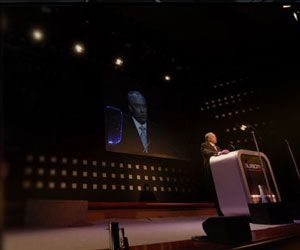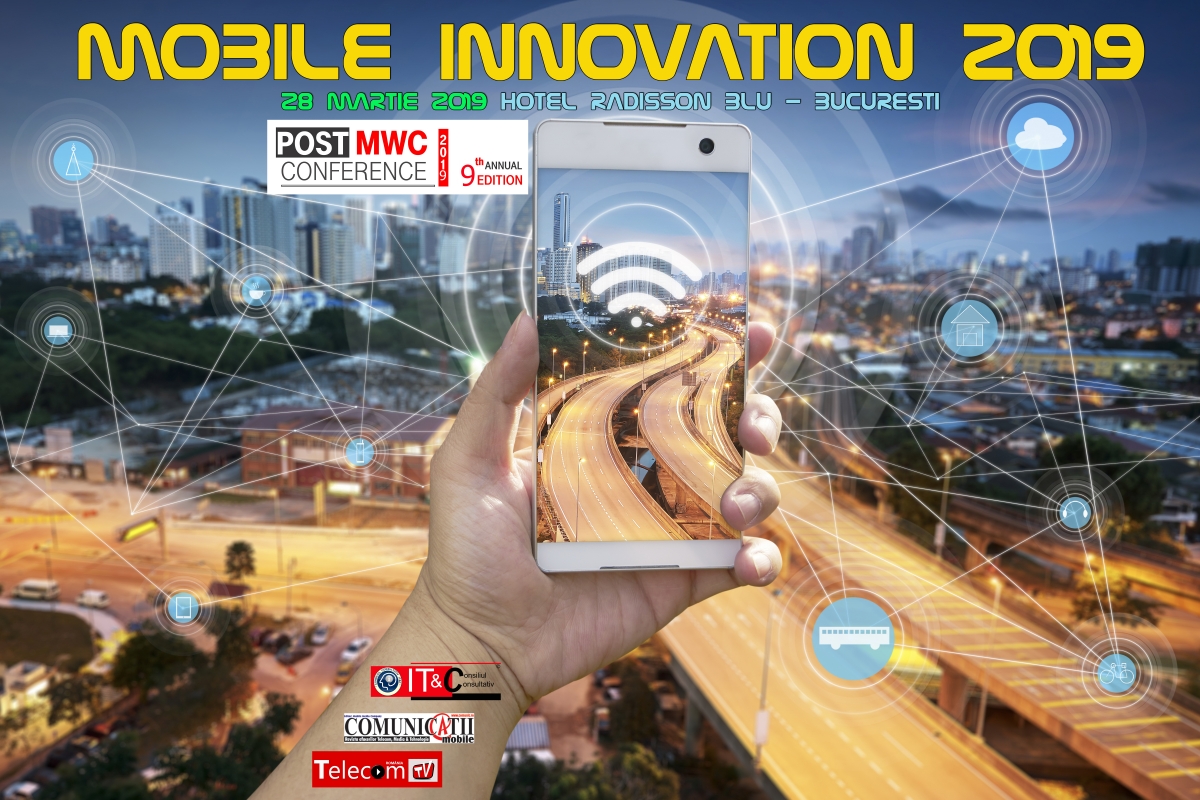
At the GSMA's Leadership Summit which opened the Mobile World Congress in Barcelona, Spain, on February 16, 2009, bringing together 400 CEOs, government ministers and officials, industry leaders stressed the unique role that broadband, specifically mobile broadband, can play as an economic stimulus. Those leaders called for governments to support the rollout of mobile broadband services to drive economic growth.
Speaking at a press conference led by Rob Conway, CEO of the GSMA, Carl-Henric Svanberg, CEO of Ericsson, Alexander Izosimov, Chairman of the GSMA and CEO of VimpelCom, Franco Bernabe, CEO of Telecom Italia, Jon Fredrik Baksaas, CEO of Telenor Group and Jeffrey Sachs, Director of The Earth Institute at Columbia University, set out how the wider use of mobile broadband services can stimulate growth and help the world recover from the economic crisis. Wang Jianzhou, CEO of China Mobile, spoke about the investment in mobile infrastructure that his company is making in China and its benefits.
The release of new spectrum for mobile broadband services in 2009 will ultimately add the equivalent of $211 billion to China's GDP, and could add the equivalent of $95 billion to India's GDP, according to a new report by Professor Leonard Waverman and consultancy LECG for the GSMA, which represents the global mobile industry. These figures represent the long-term impact on GDP, on a purchasing power parity basis, resulting from a projected investment of $59 billion in 3G networks in China over the next three years and an investment of $20 billion in India over the next five years. The rollout of mobile broadband networks will create hundreds of thousands of jobs, encourage new businesses across the value chain, improve productivity and boost consumer spending.
As the mobile industry is one of the few parts of the private sector currently capable of providing an economic stimulus, governments need to ensure they adopt policies that encourage more investment in mobile services and networks. Wherever possible, governments should seek to create a stable regulatory environment, while licensing spectrum on the right terms to encourage spending on network infrastructure and services, stimulating economic growth.
It is also important that governments allocate the same spectrum as other governments in their region for mobile broadband services - this kind of harmonisation will allow the same devices to be used in many different countries and enable manufacturers to achieve economies of scale and lower prices for end users.
The switchover to digital television will present a once-in-a-generation opportunity to make low-frequency spectrum, in which radio waves travel long distances and better penetrate the walls of buildings, available for mobile broadband services. Of the 400MHz of low-frequency spectrum freed up by the switch-off of analogue television, the GSMA believes 100MHz should be used to enable the roll out of cost-effective mobile broadband networks.
Deploying a mobile broadband network using 700MHz spectrum, for example, can cost 70% less than deploying the same network using the 2100MHz spectrum underpinning most of today's 3G mobile networks, making rural areas and other "white spots" economically viable to serve. Moreover, providing mobile broadband coverage is far more cost-effective than installing a new fixed-line broadband connection. The World Bank estimates that connecting an individual to a mobile network can cost one-tenth of the cost of providing a new fixed-line connection.
"For mobile broadband to be a mass-market service worldwide and powerful engine of economic growth, the mobile industry needs both a stable regulatory climate and access to the right spectrum on the right terms," said Rob Conway, CEO and Member of the Board of the GSMA. "Wherever possible, governments need to allocate the same chunks of spectrum as other countries in their region, enabling equipment manufacturers to gain economies of scale by producing mobile broadband handsets, computers and other devices that will work in many different markets."
"If the mobile industry can continue to grow and develop at the rate it has over the past 15 years, it could act as one of the few locomotives which can help pull our economies out of the current slump," said Alexander Izosimov, Chairman of the GSMA and CEO of VimpelCom. "Governments need to adopt policies that nurture this potential, rather than stifling it."
"The rolling out and operation of 3G networks in China will create 300,000 job opportunities directly and indirectly," said Wang Jianzhou, Chairman and CEO of China Mobile. "On the one hand, 3G investments will directly boost the development of the telecom manufacturing industry; on the other hand, 3G handsets and 3G applications will drive consumer spending and help companies through the difficulties brought by the financial crisis."
"The evolution of mobile broadband is proof that capital expenditure by operators lays the foundations for the growth of an entire ecosystem," said Franco Bernabe, CEO of Telecom Italia. "In the currently uncertain economic climate, it is simply unimaginable that we will enter a new phase of European and worldwide growth if we do not have sufficient availability of bandwidth. Bandwidth is the necessary driver for direct investments such as radio access infrastructure and demand for fibre-optic backhauling; it is also a driver of indirect investment, through the emergence of new market players and new services. If we wish to repeat the successes of the past - successes in technology that, from GSM onwards, have made improvements to our lives - this potential may only be realized fully within a harmonious regulatory context."
"Our industry and the authorities must work together to find sustainable business models for mobile broadband," said Jon Fredrik Baksaas, President and CEO, Telenor Group. "If we get this right, mobile broadband will have the same deep changing impact on people's lives as basic mobile services have had."
"Mobile broadband is essential for socio-economic growth and, with LTE, the industry has, for the first time, a true global standard," said Carl-Henric Svanberg, President and CEO of Ericsson. "The deployment of mobile broadband is also particularly important for closing the digital divide and the allocation of low-frequency spectrum is a prerequisite."
"Mobile technologies are the most powerful tools we have for combating extreme poverty in the most isolated parts of the world," said Jeffrey Sachs, Director of the Earth Institute. "By closing the digital divide, mobile connections give the poor access to vital health services and students from all parts of the world a chance to learn through 'global classrooms.' Similarly, mobile phones are being deployed to expand agro-business, e-governance, banking, and commerce throughout poor countries. Private companies are taking in the lead in countless creative and path-breaking efforts, and these breakthroughs are being expanded rapidly through public-private partnerships. Digital technologies will play a core role in ending poverty and in enabling the world to join together through markets, social networks, and cooperative efforts to solve our common challenges."
In Europe, Finland, Sweden, Switzerland, France and the UK have already committed to allocating some of the spectrum freed up by the switchover to digital television to mobile broadband services.
SOURCE: GSMA
The GSMA represents the interests of the worldwide mobile communications industry. Spanning 219 countries, the GSMA unites more than 750 of the world's mobile operators, as well as 200 companies in the broader mobile ecosystem, including handset makers, software companies, equipment providers, Internet companies, and media and entertainment organizations. The GSMA is focused on innovating, incubating and creating new opportunities for its membership, all with the end goal of driving the growth of the mobile communications industry. For more information, please visit http://www.gsmworld.com/





